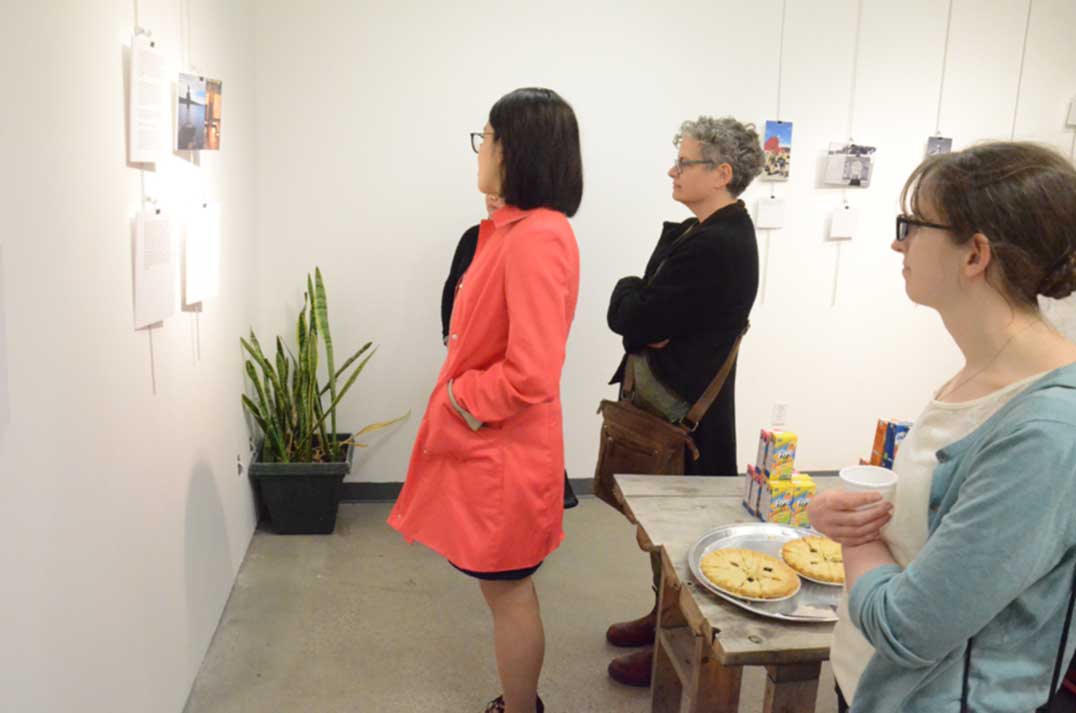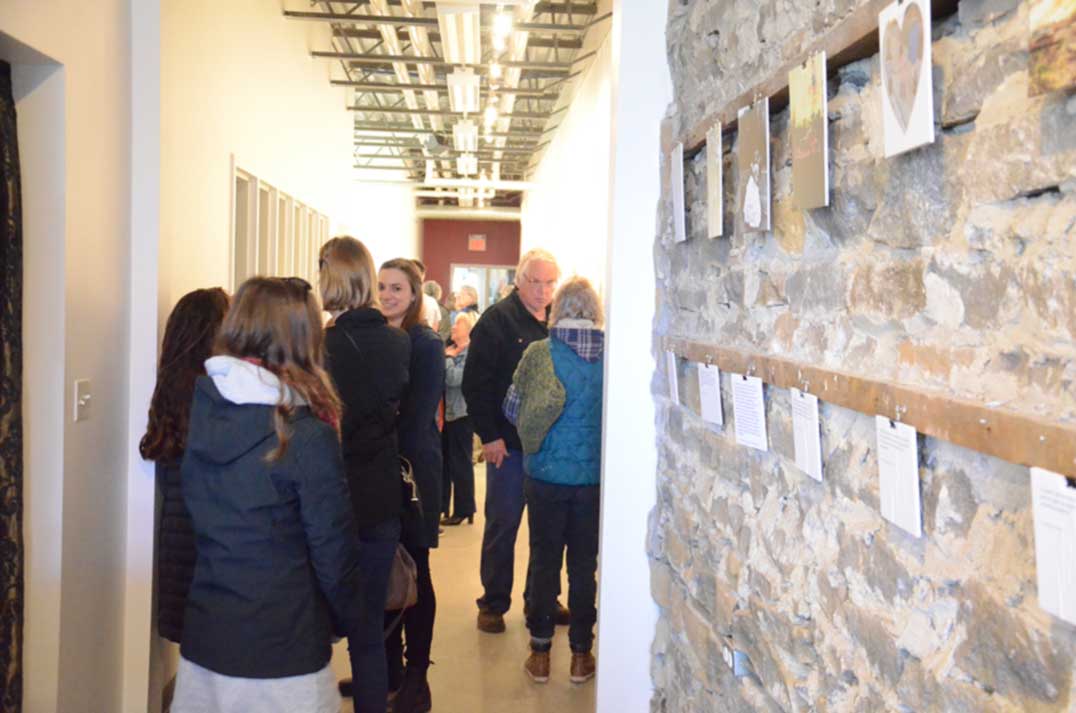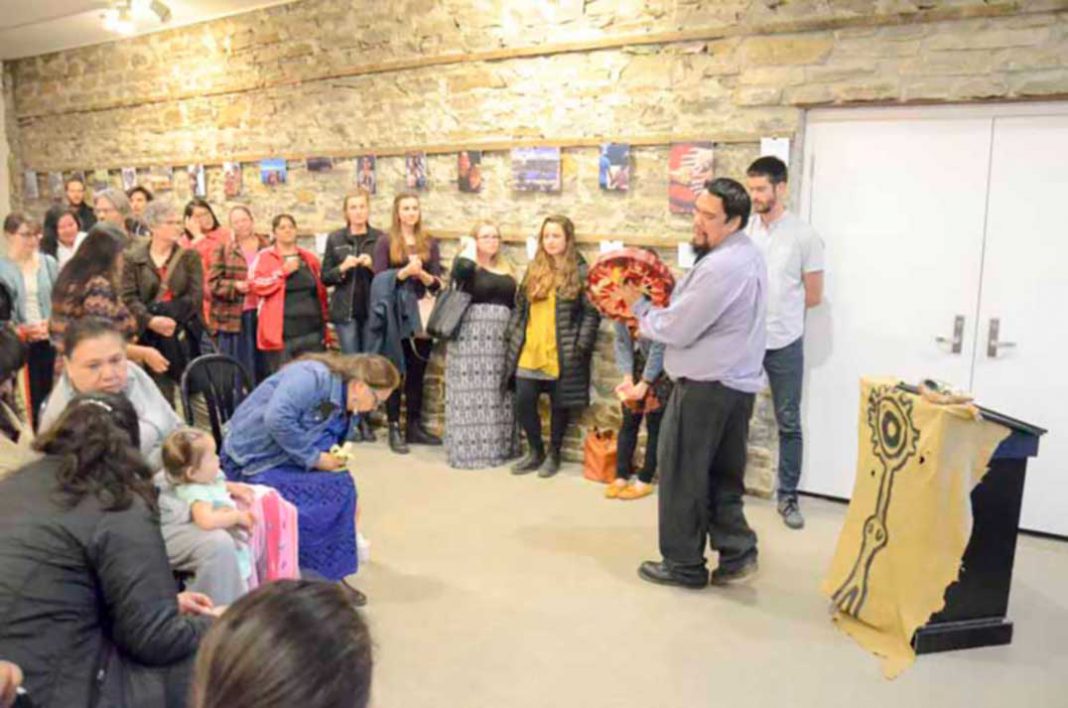An empowering creative force that paves the way to healthy domestic relationships
MANITOWANING—A photograph may be worth a thousand words, but its power as a therapeutic tool for those dealing with domestic violence is incalculable. The Noojamadaa Exhibit – Indigenous Perspectives on Healthy Relationships currently on display at the Debajehmujig Theatre Centre is a collection of photographs that have blazed a path toward healthy family relationships and are the result of an innovative therapy approach rooted deeply in Anishinaabe approaches to healing and support.
That project was spearheaded by Mnaamodzawin Health Services in collaboration with the Northern Ontario School of Medicine. Over the past year and a half, Northern Ontario School of Medicine associate professor of medical anthropology, Dr. Marion Maar, and graduate student Beaudin Bennett worked with Island health agencies in a process known as photovoice.
The tangible result of that work is the Noojamadaa (let’s heal) Project and was first exhibited at the new School of Architecture in Sudbury last month.
Debajehmujig artistic director Joe Osawabine welcomed the photo display to the creation centre, introducing Dr. Maar, Mr. Bennett and many of the First Nations women whose work comprises the exhibit.

“A picture is worth a thousand words,” said Mr. Bennett. “I think that is a big part of what you see here.”
“We wanted this project to be strength-based,” said Dr. Maar, noting that was a large part of focussing on healthy relationships. “What is really exciting is that it is being shared beyond the communities, that is a big reason for why we are here.”
The exhibit is billed as using “an experiential learning approach to foster and promote healing and reconciliation” and being “a space for indigenous and non-indigenous peoples to reflect on our shared journey towards wellness, through contemplation of our relationships with one another and our surroundings.”
Mr. Osawabine followed his words of welcome and introductions with an explanation of the central petroglyphs, and their interpretation by the late Odawa elder and Debaj mentor Eddie King, upon which the foundation of the Debajehmujig Theatre Centre’s approach is laid.
The powerful stories relayed by the photographers during the April 27 opening of the exhibit maintained a common theme, along with the exhibit itself, the message remained focussed on the positive.
Photographer Sheila Trudeau noted that she felt “empowered by publishing her photos,” finding a larger audience for her work, stretching beyond the comfort zone of family and friends tapped deeply into a power she did not realize was there before.
“Resilience,” said photographer Marjorie Beaudry. “I have really thought about resilience since I first met Beaudin.” Her own journey has demonstrated the power of resilience and is reflected in the work on display.

Alison Recollet spoke of the abuse that she suffered, but only as a context for the forgiveness she had found in her heart for her abuser, a traditional healer, who had himself been abused in residential school. “I thought I would hate all men,” she said. But then she reflected on her own children and realized that was not a path that she could allow to be open to her on her life’s journey.
All of the participants thanked Wiikwemkoong elder Dorothy Kennedy for her support, guidance and teachings and for helping them to find their way to a healthier and more positive place in their lives.
Included in the exhibit is a five-minute video that explores the project and which will form the basis of a larger documentary effort by Debajehmujig.
The only thing missing in this exhibit are men, noted several of the proponents. “That is something we hope to find, a pathway that men may follow,” said Mr. Osawabine, as he looked out over the room filled three-quarters with women. “Perhaps in time they will come to fulfill their part of the symbol.”
The Noojamadaa Exhibit – Indigenous Perspectives on Healthy Relationships will be on display at the Debajehmujig Creation Centre at 43 Queen Street in Manitowaning Monday to Friday from 10 am to 4 pm until Friday May 12 at 4 pm. Admission is free and school visits are encouraged.



